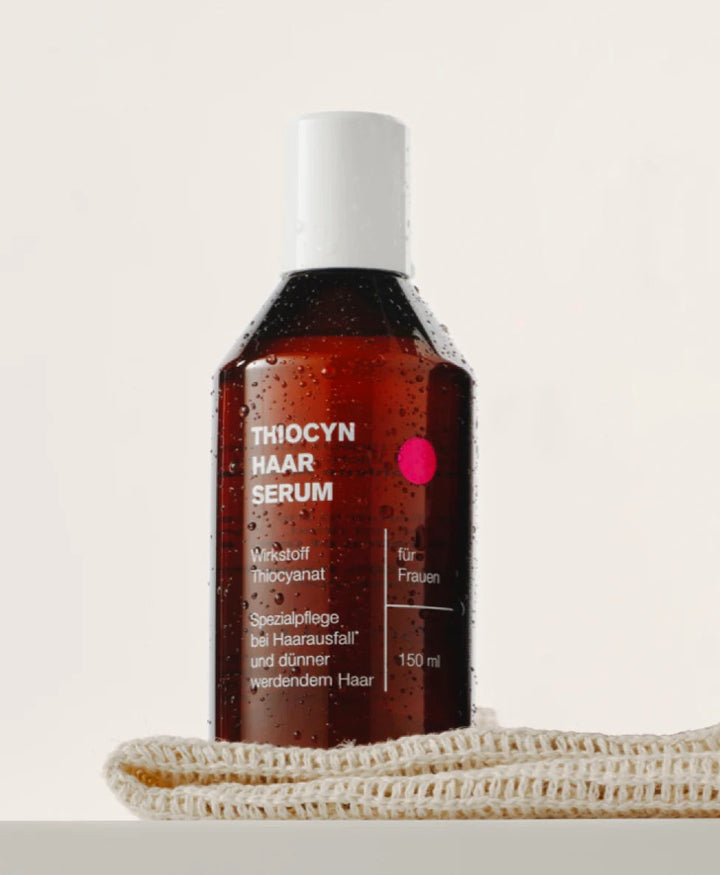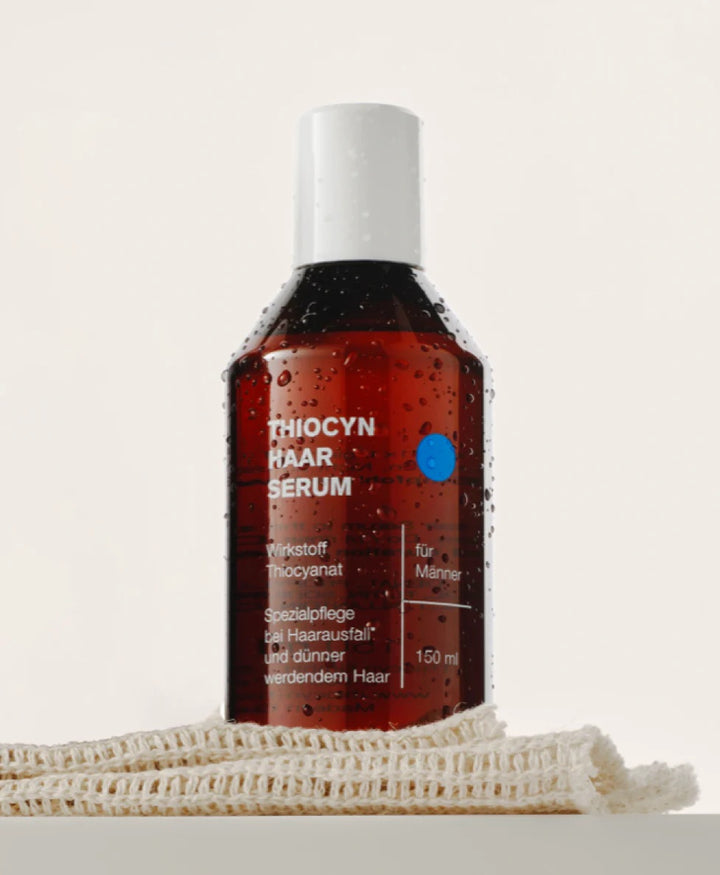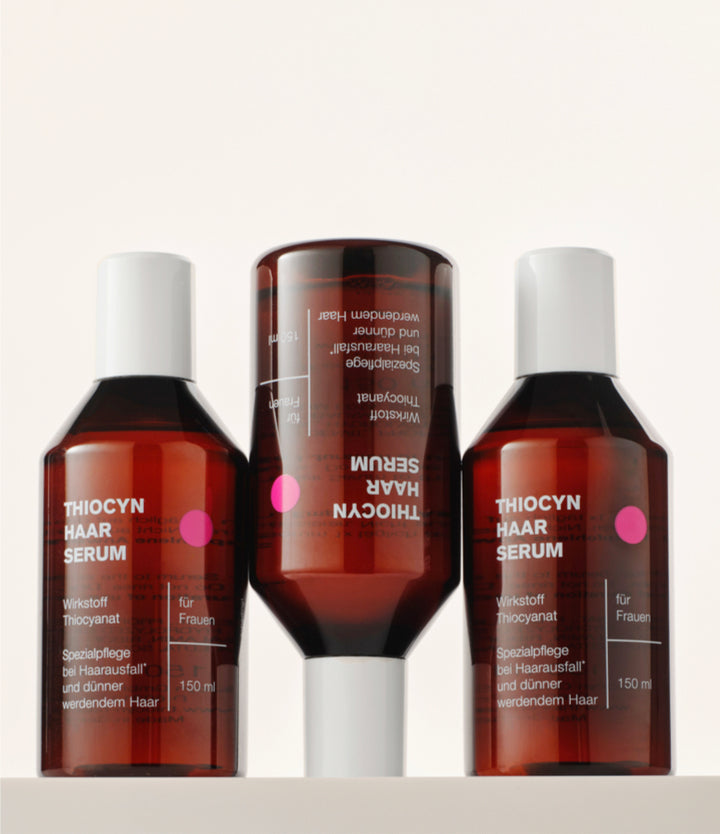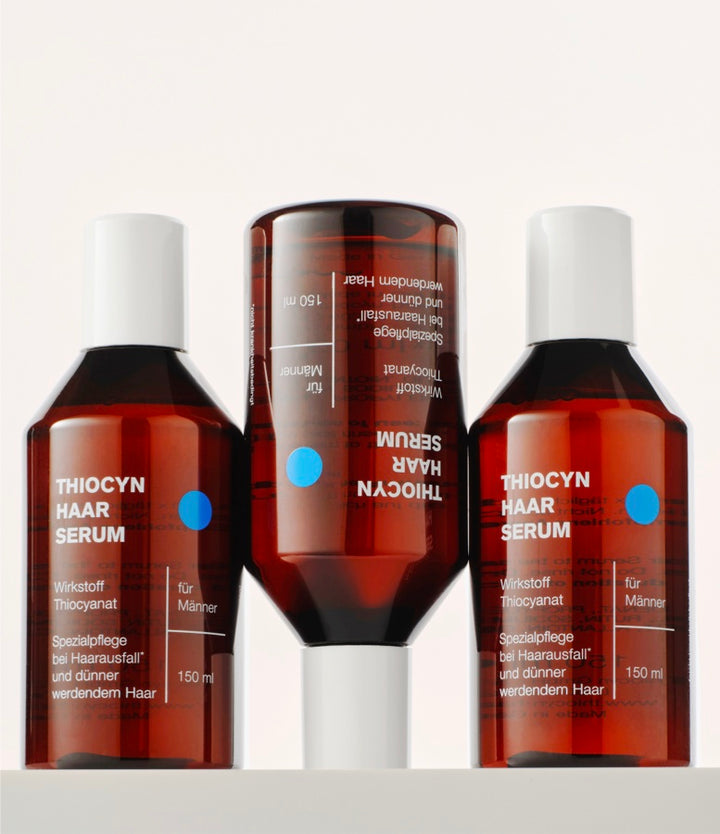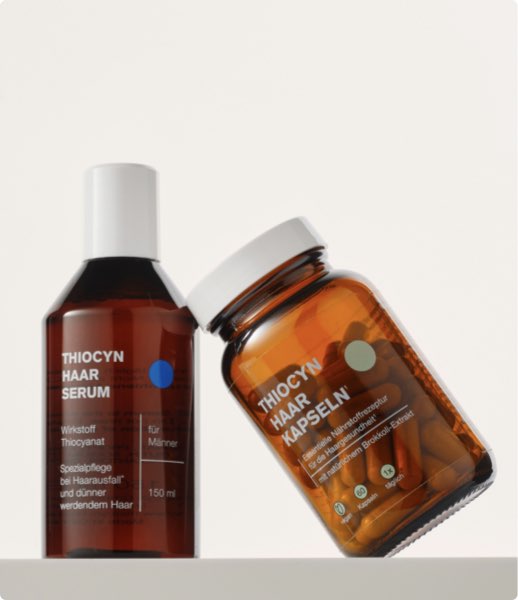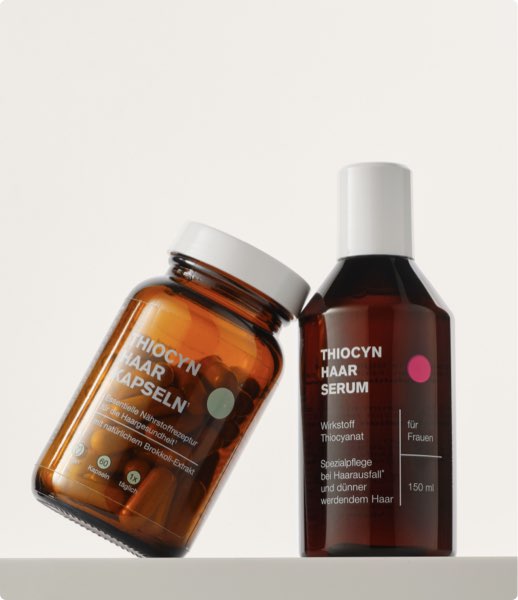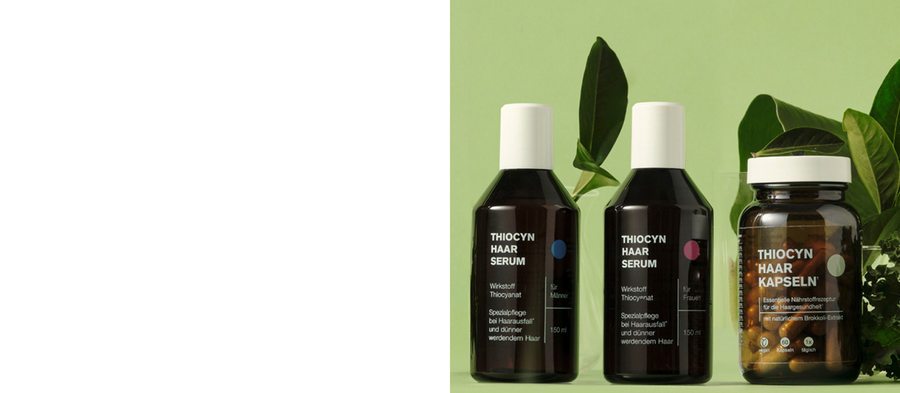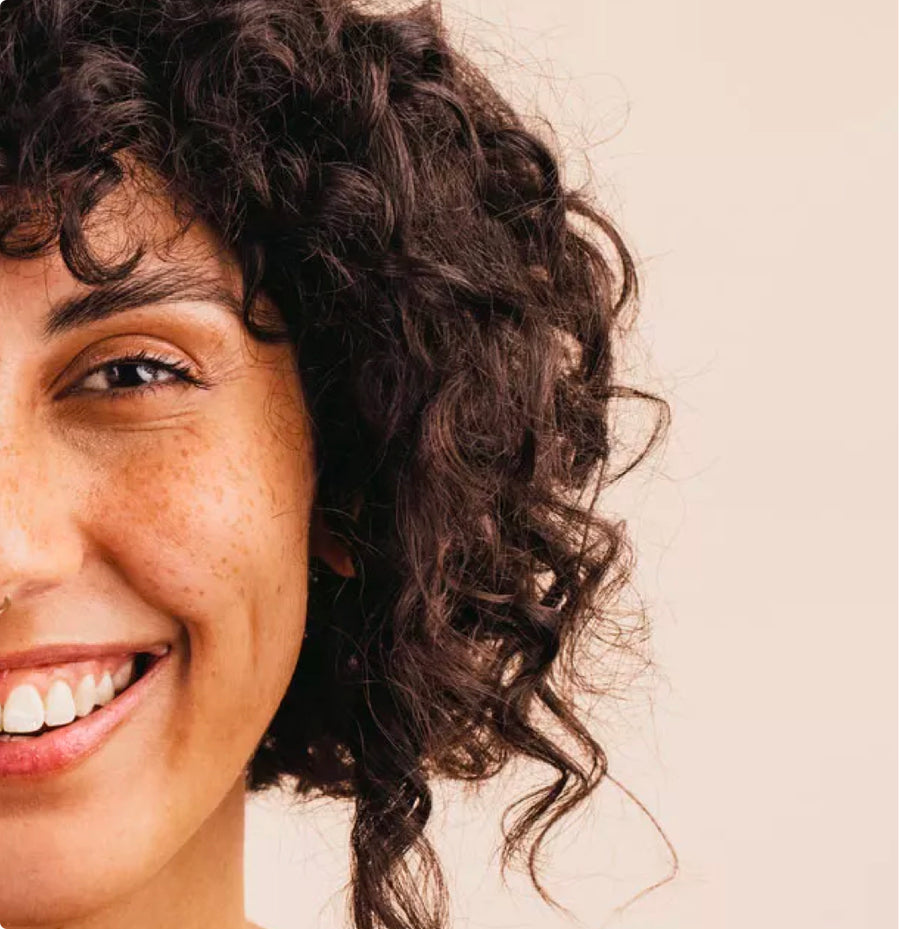| 04. July 2023
Why does iron deficiency cause hair loss?

- Iron deficiency leads to hair loss because the hair follicles lack oxygen.
- If oxygen is lacking, aerobic energy metabolism comes to a standstill.
- Women are particularly affected by iron deficiency.
- Iron deficiency is relatively easy to remedy: through a balanced diet, if necessary intravenously in acute cases.
- Thiocyanate stabilizes cell metabolism and normalizes the hair cycle.
For continuous growth, hair relies heavily on nutrients such as glucose, lipids, and vitamins, as well as iron for "cellular respiration." The oxygen we absorb through the lungs is bound in the blood due to the presence of iron and ultimately distributed throughout the body via the bloodstream. The breakdown of carbohydrates under the influence of oxygen ultimately generates the energy that triggers cellular metabolism at the hair roots. A lack of iron results in iron deficiency. In women, this is one of the most common causes of diffuse hair loss.
Especially women suffer from iron (ferritin) deficiency
Iron deficiency, or more specifically, ferritin deficiency, makes the blood less red and, from a medical perspective, anemic. This means that the hair cells receive too little oxygen, and aerobic energy metabolism stalls. Hair growth then slows. In the worst case , the hair follicles shed their hair , leading to excessive hair loss.
Since hair loss can occur even before anemia, dermatologists consider even a subtle reduction in iron-containing enzymes and cofactors in the scalp to be a contributing factor to hair loss. Iron deficiency overall impairs the ability of hair matrix cells to divide and grow.
Causes of iron deficiency
Common causes of iron deficiency include a vegetarian diet, surgery, or bleeding in the gastrointestinal tract. Women are particularly susceptible to iron deficiency, especially due to blood loss during menstruation. During pregnancy or breastfeeding, women need even more iron to maintain all their body functions.
Symptoms of iron deficiency – e.g. hair loss
A reduction in iron reserves in the body leads to paleness, fatigue and lethargy, forgetfulness and poor concentration, and reduced resilience. Last but not least, diffuse hair loss becomes noticeable. Hair loss occurs all over the head.
One could almost say that with iron deficiency, hair also suffers from fatigue and is too tired to continue growing. A dermatologist's trichoscan typically shows a high proportion of telogen hair, which is hair that falls out at the next mechanical stimulus (washing, combing, wind). Other symptoms of iron deficiency, besides hair loss, include thin nails and chapped corners of the mouth.
Athletes, iron deficiency, hair loss
Women and men who exercise frequently and intensively are at an even greater risk of iron deficiency. Regular endurance exercise or daily training in the gym increases blood volume by 10–20%. With normal iron intake through the daily diet, the athlete's body then has less iron than a non-athlete of comparable height, weight, or BMI. The result is iron deficiency due to dilution anemia. If athletes also follow a diet to control body weight, the iron deficiency is exacerbated, increasing the tendency for hair loss.
Compensate for iron deficiency
To diagnose iron deficiency, a family doctor or dermatologist will analyze your blood count, specifically your ferritin level. Ferritin is a protein that stores iron. Although most ferritin is found within cells, the ferritin concentration in your blood serum provides a measure of your body's iron levels.
Drug therapy
If ferritin levels indicate iron deficiency, taking iron tablets is recommended. Typically, the treating physician will prescribe low-dose iron supplements to protect the liver and heart from an excess of iron. In cases of severe blood and iron loss, the doctor may also suggest intravenous iron supplementation.
Dietary change helpful
In the case of recurring iron deficiency, only a change in preferred foods will likely help in the long run. Those who avoid meat and fish should focus more on pulses, whole grains, or beets. Iron absorption from plant products is increased by vitamin C, such as in freshly squeezed orange juice. However, large amounts of coffee and tea directly after meals should be avoided because the tannins they contain inhibit the absorption of iron from food. The same applies to dairy products and the effect of certain proteins. Vegetables rich in iron—such as spinach, chard, or carrots—should be avoided with cream, if possible.
Improvement of cell metabolism at the hair root
Ultimately, iron deficiency is probably not the only factor that contributes to diffuse hair loss. Thinning hair is usually caused by a confluence of several factors. To counteract hair loss, it is beneficial to stabilize the disturbed cell metabolism with thiocyanate at the hair root, thereby stimulating new, strong hair growth.
READ BY 23,000 PEOPLE
Join 23,000 others and find out how to improve your hair health with great offers and discounts as well as helpful advice
